What election issues are important for young people?
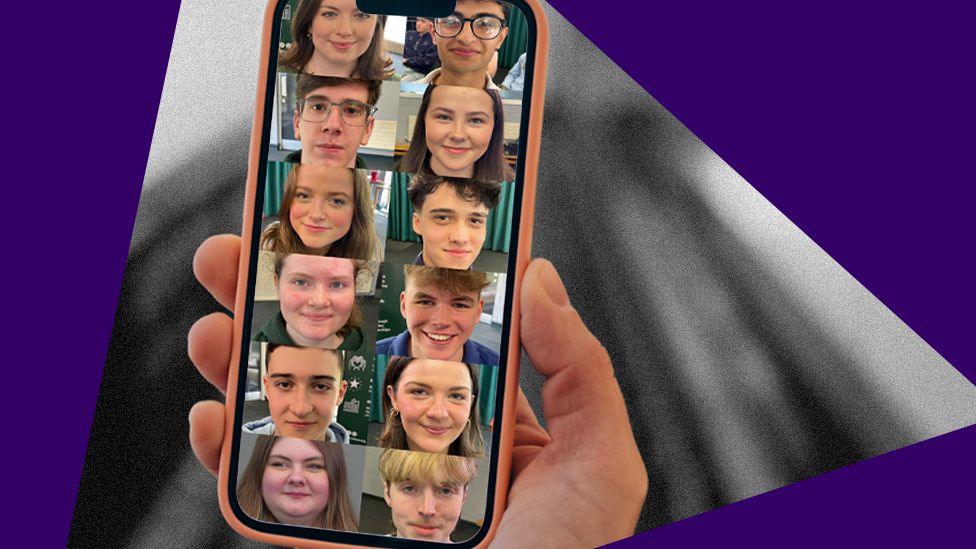
- Published
Social media regulation, the health service, abortion rights and assisted dying are among the issues which matter to first-time voters in Northern Ireland in the 2024 General Election.
Twelve teenagers, from a range of constituencies, answered a series of questions in a group interview with BBC News NI.
The young people, who had all taken part in a YMCA Youth in Government course, are all eligible to vote in a general election for the first time on 4 July.
The first question they were asked was: ‘Are you going to vote’. All 12 said they would.
Eleven of them also answered yes when asked if they believed the election mattered.
Eight of the 12 said the minimum voting age should be 16, rather than 18.
Nine out of 12 said they may consider running for office themselves.
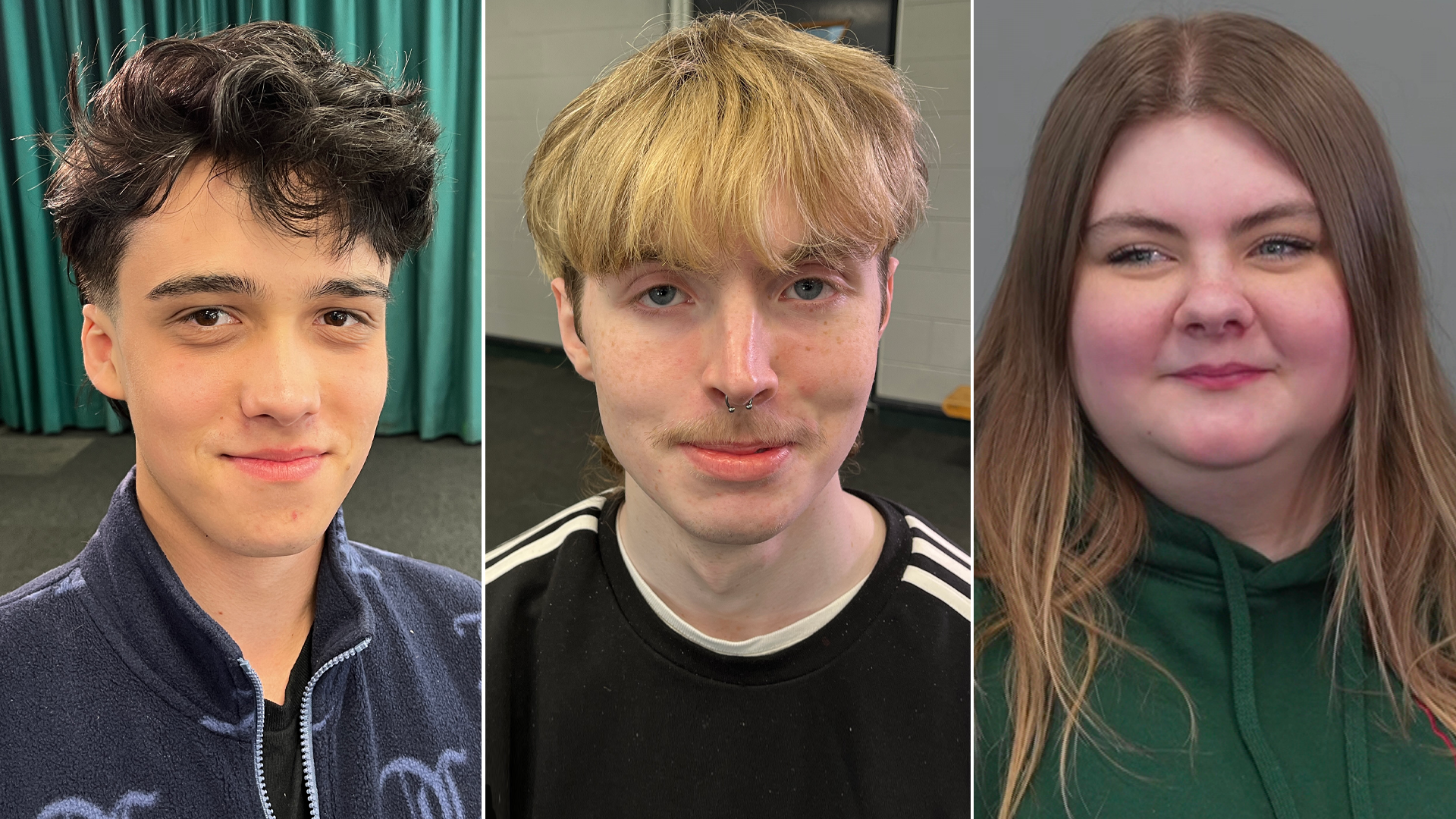
Ryan, Sean and Sophie are all first time voters
What is the excitement level among young people?
Ryan, from north Belfast, was the least enthusiastic of the 12-person panel, although all said they were looking forward to the election.
“My polling station is two minutes up the road from me. It’s really not a big deal,” he said.
On the other end of the scale was Iona, 18, from Newtownards.
Indeed, she was “very, very excited” and even talked about framing her polling card.
She said she had been “waiting for so long to have a say” as she prepares to vote for the first time on 4 July.
Robyn, from Armagh, said it was “really good” that she was going to have a say “even if it’s quite small”.
She hoped for a high turnout. Last time, in 2019, turnout in Northern Ireland was 61.8% of registered voters.
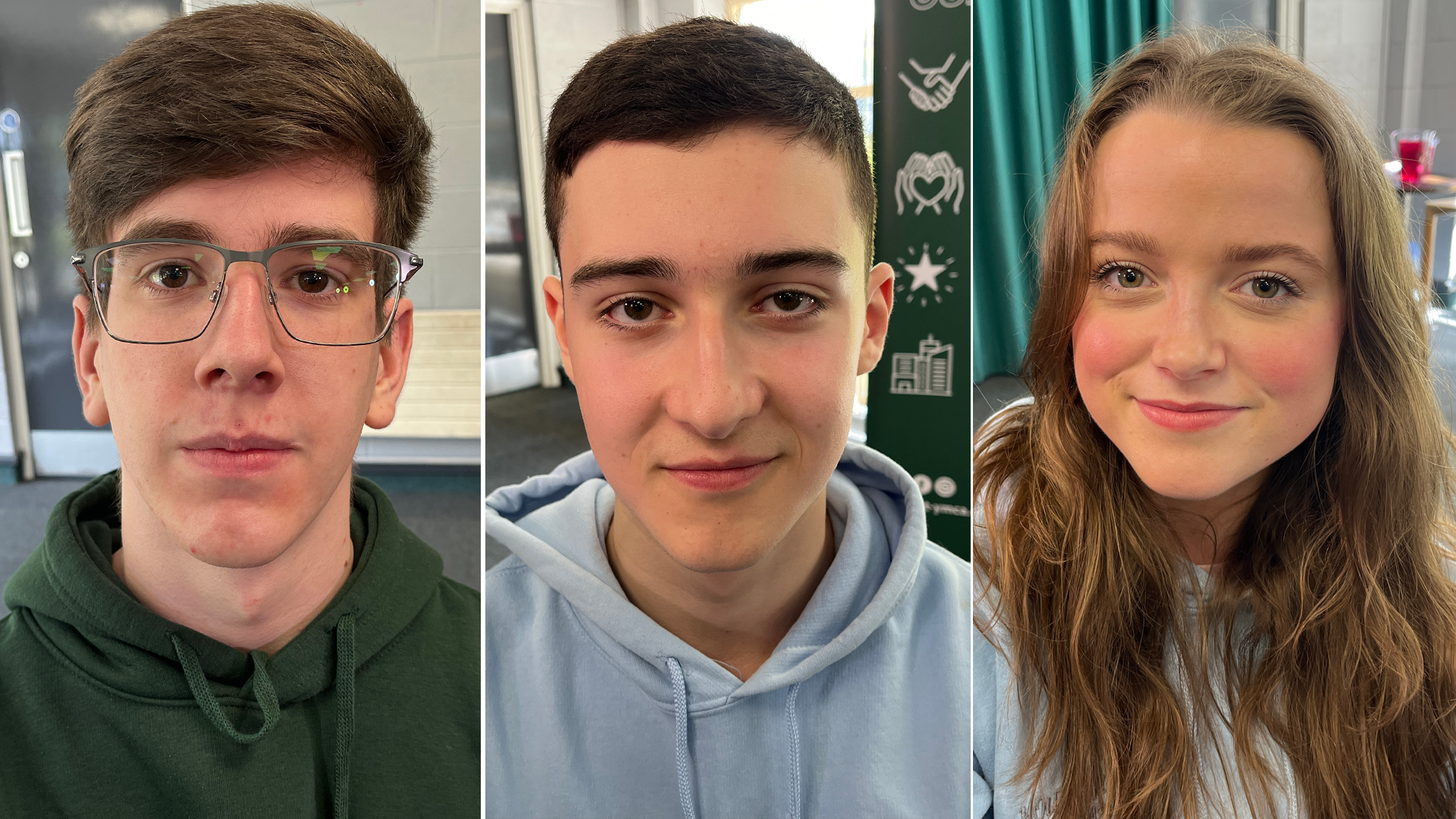
John, Joshua and Robyn have taken part in a youth in government YMCA group
For Cara, 18, from north Belfast, voting was important “because we fought for the right to vote”.
This was echoed by Joshua from south Belfast who said his vote was important because “there are still loads of places in the world that people don’t have voting rights. I think it’s a privilege to vote”.
Caoimhe, who is also from the south of the city, said she wanted to be represented, “even if Northern Ireland does have a very small role in Westminster”.
Do you believe the vote will change much?
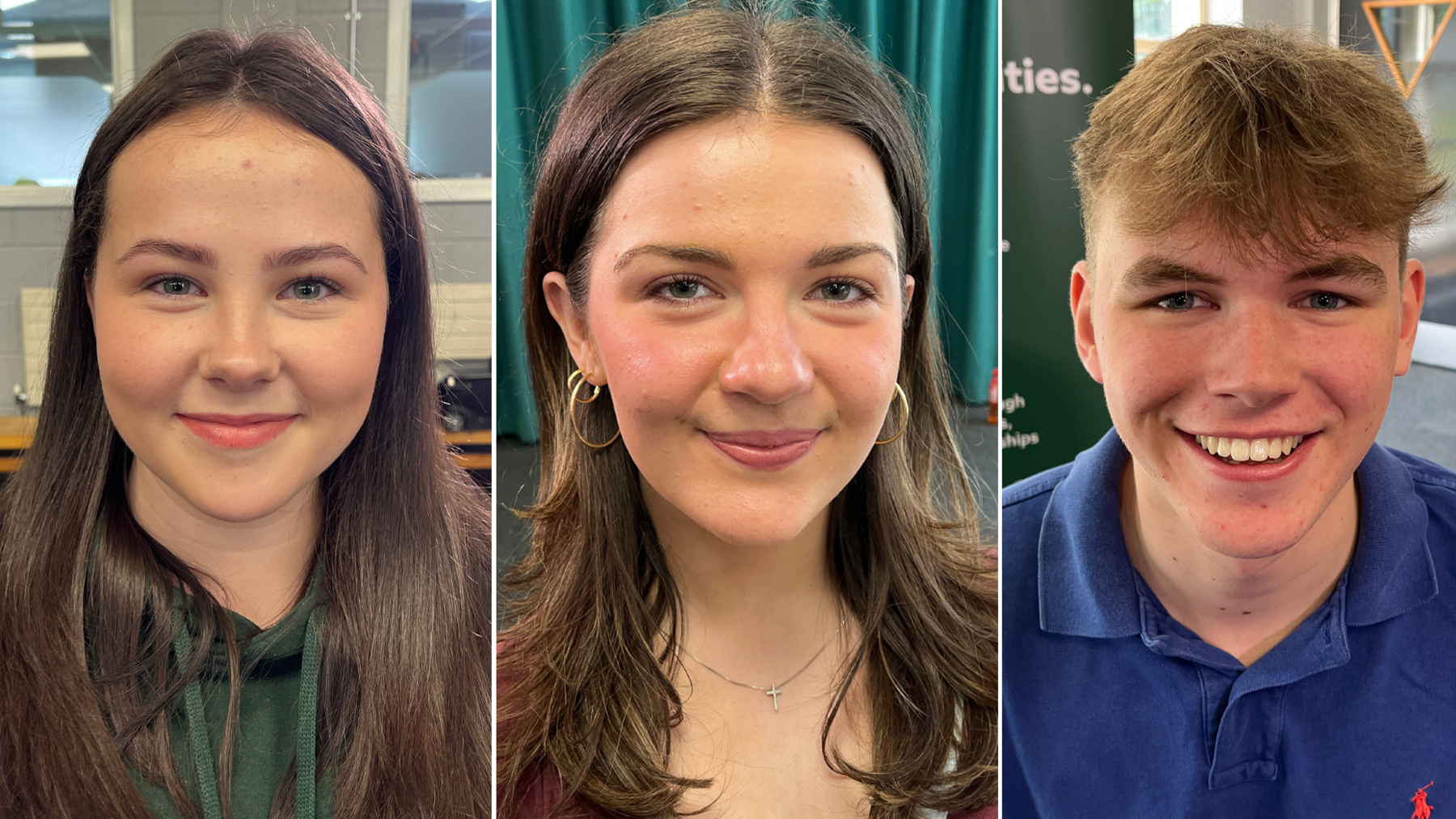
Clodagh, Iona and James said they would be going to the polls on 4 July
There were mixed views among the panel of young people about what difference the vote will make post-election.
Sophie, 18, from Kircubbin said she believed “most things will stay the same”, while John from east Belfast expected a few seats will be “quite close” which he said could be a good indicator of the public mood.
James, from south Belfast, does not expect many of Northern Ireland’s seats to change hands.
“There are quite a lot of seats in Northern Ireland that are quite safe so maybe there won’t be many surprises," he said.
He added, however, “it’ll be interesting to follow”.
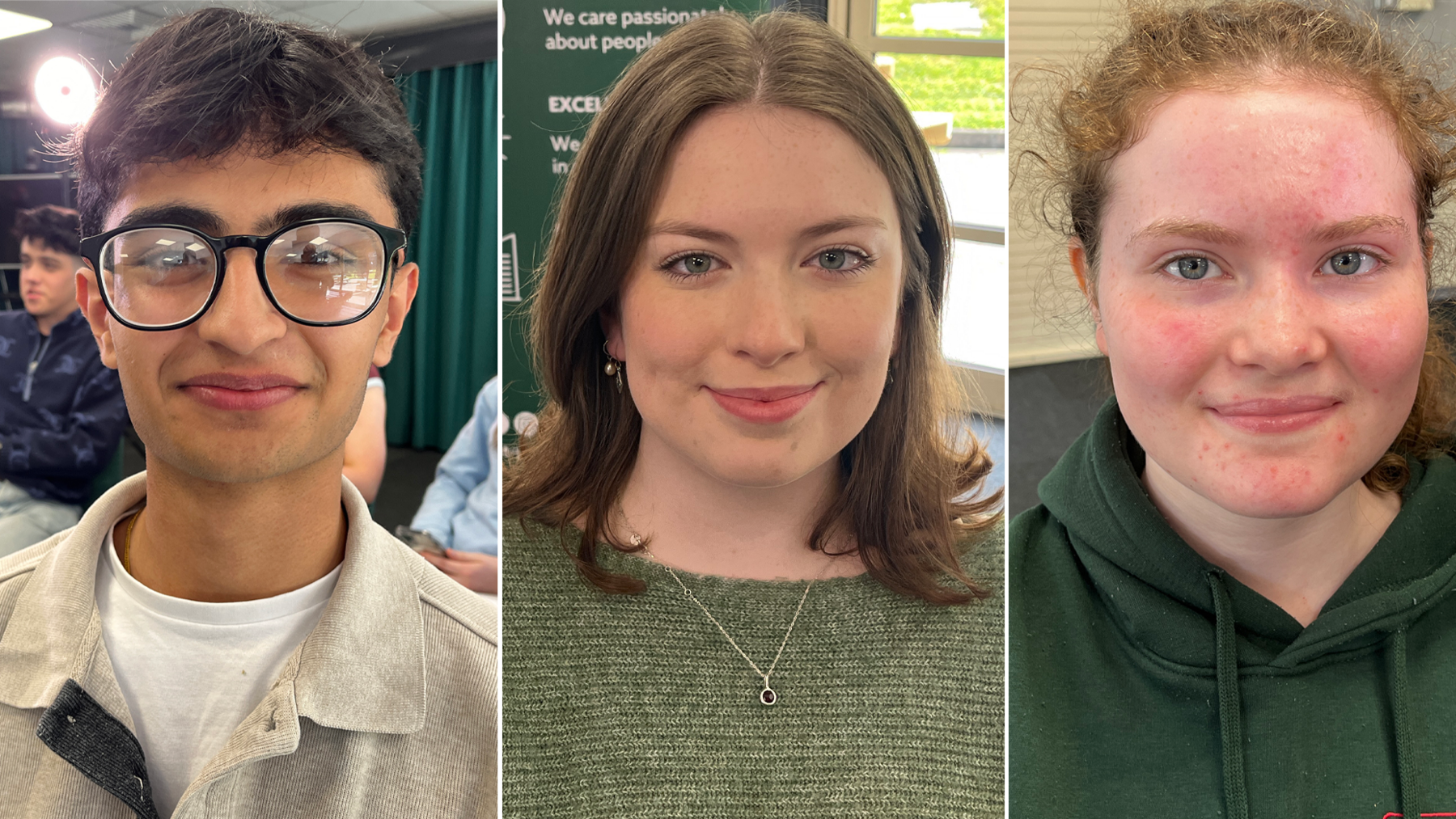
Ashish, Caoimhe and Cara were asked a range of questions by BBC News NI
Clodagh said she believed future elections could be telling about a changing Northern Ireland, even if that change is happening “slowly”.
“Maybe not this time around, but I think with the peace generation – which is what we’re called – I think there’s going to be a generational shift.”
What issues are most important to young people?
The most common answer was the health service.
Cara said it was a priority, while Sophie detailed she had recently visited a hospital and witnessed the extreme pressure on staff, which she described as “pure madness”.
Although the running of the health service is a devolved matter overseen by the Stormont Executive, rather than at Westminster, Sean said it was a “really big issue” for young voters.
James expressed worries that the law could change in future to permit assisted dying in the UK, while abortion rights were highlighted by Caoimhe.
She also touched upon the environment as a big consideration.
Elsewhere, Ryan highlighted the economy as being important for his vote.
Ashish, 19, from south Belfast, said it was important to fix issues in the economy due to the impact of the Covid-19 pandemic and the war in Ukraine.
For John, it is foreign policy and defence near the forefront of his priority list.
Clodagh, meanwhile, said social media regulation was key and she believed hers is the last generation “to play outside”.
“What is the point in us sitting here voting in these elections and trying to create another world if children won’t look up at it?” she told BBC News NI.
